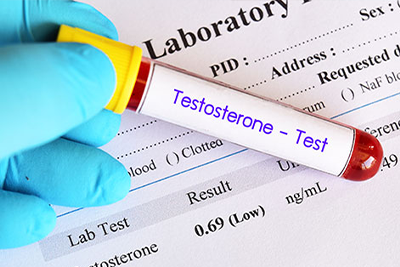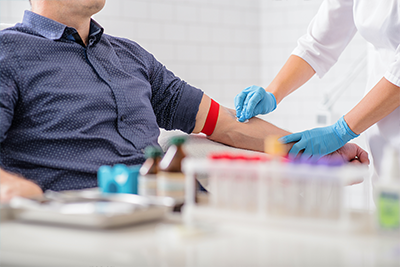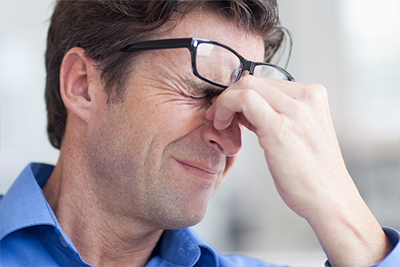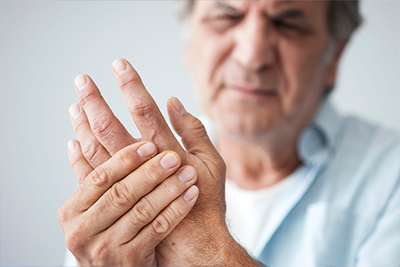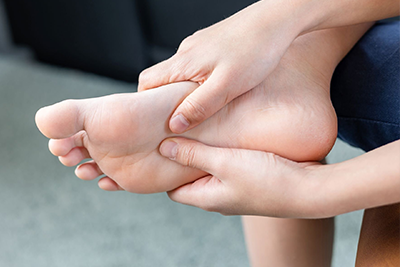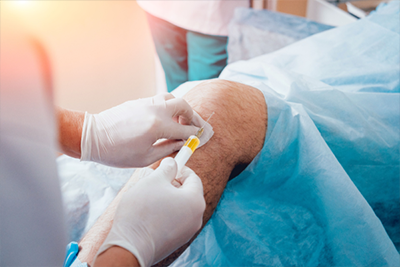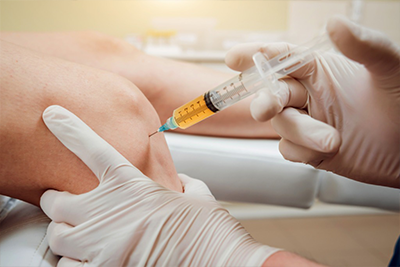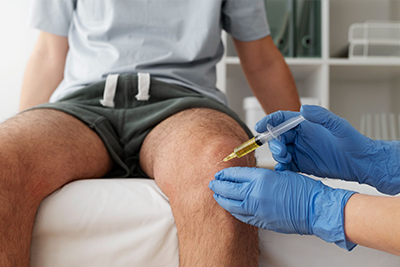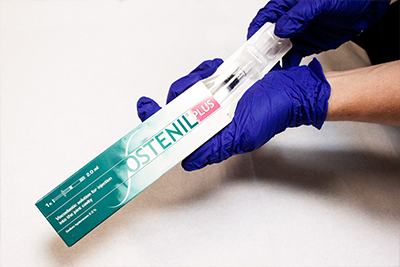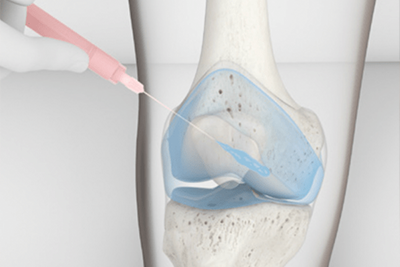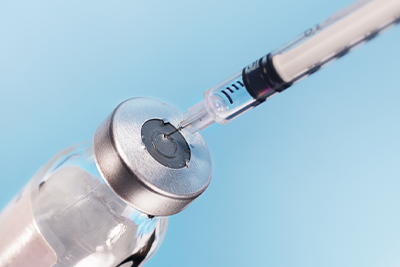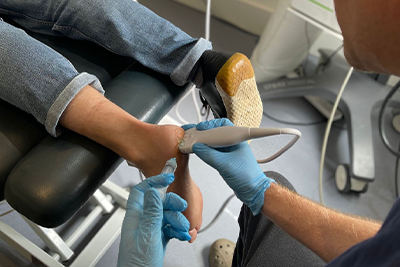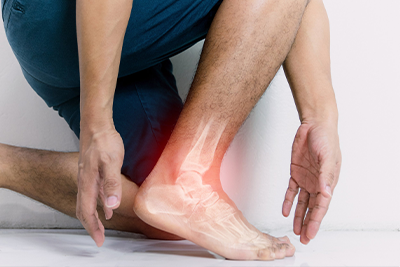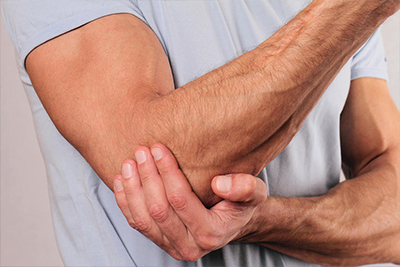Low testosterone, also known as hypogonadism, is when the body produces insufficient levels of the primary male sex hormone, testosterone. This hormone is crucial in various aspects of men’s health, including muscle development, bone density, and sexual function. Impotence, or erectile dysfunction (ED), is the persistent difficulty in achieving and maintaining an erection firm enough for sexual intercourse. Although they are distinct conditions, low testosterone and impotence are often interconnected, affecting many men across the UK and beyond.
Sexual health is integral to overall well-being, and addressing these issues can positively affect mental health, self-esteem, and relationships. Understanding the link between low testosterone and impotence is essential for men’s health, as both conditions can significantly impact one’s quality of life. Recognising the connection between these conditions also enables men to seek appropriate medical help and implement lifestyle changes to improve their health and sexual function.
We look at the roles of testosterone in the male body, the causes and symptoms of low testosterone, and how it affects sexual function. Additionally, we will explore the diagnostic process and various treatment options available for men experiencing low testosterone and impotence. We aim to inform, empower, and encourage men to take charge of their health and seek professional guidance when necessary.
Understanding Testosterone and Its Functions
Testosterone is the primary male sex hormone and an anabolic steroid responsible for regulating various bodily functions. Produced mainly by the testicles, testosterone plays a vital role in developing male reproductive tissues and secondary sexual characteristics. It is also present in smaller amounts in women, contributing to bone strength and libido. In men, testosterone levels significantly impact overall health, physical appearance, and sexual function.
Testosterone levels vary among individuals and can be influenced by age, lifestyle, and overall health. Generally, normal testosterone levels for adult men range from 270 to 1070 ng/dL (nanograms per decilitre), with an average level of about 679 ng/dL. Testosterone production typically peaks during adolescence and early adulthood, gradually declining at approximately 1% per year after age 30. This decline is a natural part of the ageing process and can sometimes lead to symptoms associated with low testosterone.
Key functions of testosterone
Physical development and maintenance
Testosterone plays a crucial role in the growth and maintenance of various physical attributes in men. It promotes muscle mass and strength, bone density, fat distribution, and the production of red blood cells. Adequate testosterone levels are essential for maintaining overall physical health and preventing osteoporosis and muscle wasting.
Sexual function and libido
One of the most well-known functions of testosterone is its role in sexual function and libido. Testosterone is responsible for the development of the male reproductive system, including the growth of the testes and penis during puberty. It also regulates sperm production and contributes to maintaining a healthy sex drive. Low testosterone levels can reduce libido, erectile dysfunction, and fertility issues.
Cognitive abilities and mood regulation
Testosterone also plays a role in cognitive abilities and mood regulation. Research suggests optimal testosterone levels are linked to improved cognitive function, memory, and concentration. Additionally, testosterone can influence mood and emotional well-being, with low levels associated with symptoms of depression, anxiety, and irritability.
Identifying Low Testosterone: Symptoms and Causes
Low testosterone can manifest in various ways, and the symptoms may differ from one individual to another. Some common symptoms of low testosterone include:
- Decreased libido or sexual desire
- Erectile dysfunction or impotence
- Reduced sperm count or fertility issues
- Fatigue and low energy levels
- Loss of muscle mass and strength
- Increased body fat, especially around the waist
- Reduced bone density and an increased risk of fractures
- Difficulty concentrating and memory problems
- Mood changes, such as depression, anxiety, or irritability
- Sleep disturbances, including insomnia or sleep apnoea
Causes of low testosterone levels
Low testosterone levels have several potential causes, ranging from natural age-related decline to underlying medical conditions or lifestyle factors. Some of the common causes include:
Age-related decline
As mentioned earlier, testosterone levels naturally decline with age, decreasing by approximately 1% annually after age 30. This decline can lead to symptoms of low testosterone, particularly in older men.
Testicular disorders or injuries
Conditions that affect the testicles, such as testicular cancer, orchitis (inflammation of the testicles), or undescended testicles, can impact testosterone production. Additionally, injuries to the testicles or surgical procedures like testicular removal can also result in low testosterone levels.
Hormonal imbalances
Hormonal imbalances, such as those caused by dysfunction of the pituitary gland or hypothalamus, can disrupt the body’s ability to produce and regulate testosterone. These imbalances may stem from congenital issues, tumours, or other medical conditions.
Chronic medical conditions
Chronic medical conditions, such as obesity, type 2 diabetes, liver or kidney disease, and HIV/AIDS, can negatively affect testosterone levels. In some cases, managing these conditions and seeking appropriate medical care can help improve testosterone levels.
Medication side effects
Some medications, like corticosteroids, opioids, and anabolic steroids, can interfere with testosterone production or function. If you suspect your medication contributes to low testosterone levels, consult your doctor for alternative treatment options.
Lifestyle factors
Various lifestyle factors can influence testosterone levels. These include poor nutrition, lack of physical activity, chronic stress, excessive alcohol consumption, and smoking. Adopting healthier habits can help improve testosterone levels and overall well-being.
The Link Between Low Testosterone and Impotence
Impotence, commonly referred to as erectile dysfunction (ED), is the inability to achieve or maintain an erection firm enough for sexual intercourse. ED is a widespread issue that affects millions of men worldwide and can result from various physical, psychological, or emotional factors. Some common causes of ED include cardiovascular disease, diabetes, neurological disorders, hormonal imbalances, and certain medications.
How low testosterone affects sexual function
Low testosterone can contribute to sexual dysfunction in several ways, including:
Reduced libido
Testosterone plays a significant role in regulating sex drive. As testosterone levels decline, men may experience decreased sexual desire or libido, which can negatively affect their ability to engage in sexual activity and contribute to impotence.
Difficulty achieving and maintaining erections
Testosterone is involved in various aspects of erectile function. Low testosterone levels can make it more challenging to achieve and maintain erections, leading to impotence. This can occur even in men with a strong desire for sex, as testosterone is vital for the physiological processes that support erections.
Decreased sperm production
Testosterone is essential for the production of healthy sperm. Low testosterone levels can result in a reduced sperm count or poor sperm quality, contributing to fertility issues and overall sexual function.
The role of testosterone in erectile function
Testosterone is involved in several key aspects of erectile function, including:
Blood flow regulation
Testosterone helps regulate blood flow to the penis by influencing the production of substances like nitric oxide, which relaxes blood vessels and increases blood flow. Low testosterone levels can disrupt this process and make it more challenging to achieve and maintain an erection.
Nitric oxide production
Testosterone produces nitric oxide, a molecule that plays a crucial role in achieving erections. Nitric oxide signals the smooth muscle cells in the penis to relax, allowing blood to flow into the erectile tissue and cause an erection. Low testosterone levels can hinder nitric oxide production, impairing erectile function.
Smooth muscle function
Testosterone also influences the function of the smooth muscle tissue within the penis, which plays a crucial role in erectile function. Low testosterone levels can compromise smooth muscle function, contributing to impotence. Adequate testosterone levels are necessary for maintaining the health and function of these smooth muscles, ensuring proper erectile function.
Diagnosing and Treating Low Testosterone and Impotence
To accurately diagnose low testosterone and impotence, healthcare professionals will typically conduct the following tests and evaluations:
Blood tests
Blood tests are essential for measuring testosterone levels and identifying potential hormonal imbalances. A blood sample is usually taken in the morning when testosterone levels are at their highest, and the test may be repeated to confirm the results.
Physical examination
A physical examination allows the doctor to assess the patient’s overall health and check for any signs of medical issues contributing to low testosterone or impotence, such as obesity, abnormal hair distribution, or testicular abnormalities.
Medical history
A thorough medical history helps the doctor identify any underlying medical conditions, medications, or lifestyle factors contributing to low testosterone or impotence. This information is crucial for determining the most appropriate course of treatment.
Treatment options
Treatment options for low testosterone and impotence depend on the underlying causes and individual circumstances. Some common treatment options include:
Testosterone replacement therapy
Testosterone replacement therapy (TRT) involves supplementing the body with testosterone to restore normal hormone levels. TRT can be administered through injections, gels, patches, or pellets and may help improve sexual function, mood, and energy levels in men with low testosterone.
Oral medications for erectile dysfunction
Oral medications, such as (see online pharmacy), can help enhance erectile function by improving blood flow to the penis. These medications are typically effective for men with impotence, regardless of their testosterone levels.
Vacuum devices and penile implants
For men who do not respond to oral medications or have contraindications, vacuum devices and penile implants can provide alternative solutions for erectile dysfunction. Vacuum devices create an erection by drawing blood into the penis, while penile implants involve surgically inserting a prosthesis to facilitate erections.
Counselling and psychological support
In cases where psychological factors contribute to low testosterone or impotence, counselling and psychological support can help address issues such as performance anxiety, relationship problems, or depression.
Lifestyle modifications to improve testosterone levels
Adopting healthier habits can positively impact testosterone levels and sexual function. Some effective lifestyle modifications include:
Diet and nutrition
A balanced diet rich in nutrients, including healthy fats, lean proteins, and whole grains, can support testosterone production and overall health. Consuming foods high in zinc, vitamin D, and antioxidants may also help improve testosterone levels.
Exercise and physical activity
Regular exercise, especially strength training and high-intensity interval training (HIIT), can help increase testosterone levels and improve cardiovascular health, essential for erectile function.
Stress management
Chronic stress can negatively impact testosterone levels and sexual function. Practising stress management techniques, such as deep breathing, meditation, or yoga, can help reduce stress and support overall well-being.
Sleep
Adequate sleep is vital for maintaining healthy testosterone levels. Aim for 7-8 hours of quality sleep per night and establish a consistent sleep schedule to promote optimal hormone production.
Limiting alcohol consumption and avoiding smoking
Excessive alcohol consumption and smoking can negatively impact testosterone levels and erectile function. Limiting alcohol intake and quitting smoking can improve overall health and sexual performance.
In Summary
The connection between low testosterone and impotence is an essential aspect of men’s health that should not be overlooked. Testosterone is vital in various parts of male physiology, including sexual function and libido. Low testosterone levels can contribute to impotence by reducing sex drive, impairing erectile function, and affecting sperm production. Understanding this link is essential for addressing sexual health concerns and improving overall well-being.
If you are experiencing low testosterone symptoms or impotence, seeking medical help is crucial. Remember that these issues are common and can be managed with professional guidance and support. Early intervention and appropriate treatment can significantly improve your quality of life, sexual function, and overall health.
Related Articles
- Understanding the Link Between Testosterone and Erectile Dysfunction
- Testosterone Replacement Therapy (TRT) – What You Need To Know
- P-Shot Treatment for Erectile Dysfunction
- The Science Behind P-Shot: How Does it Work?
- The Potential of Testosterone Replacement Therapy: Benefits, Risks, and Myths


